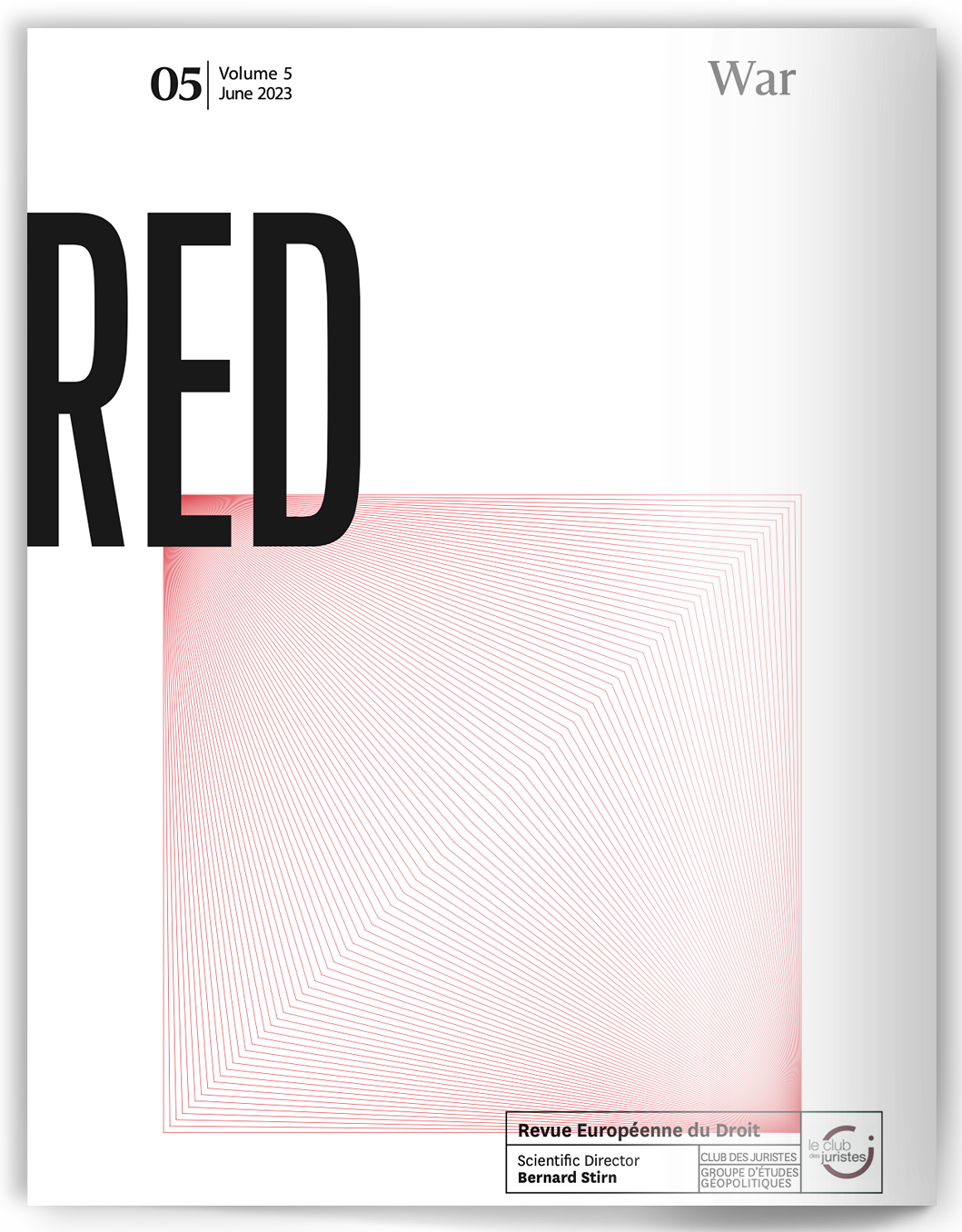Issue
Issue #5Auteurs
Bernard Stirn
Legal Journal published by the Groupe d’études géopolitiques in partnership with Le Club des juristes
The last decades of the twentieth century may have led us to believe that liberal democracy was making steady progress. After the end of the dictatorships in Mediterranean Europe, Greece, Spain and Portugal, the Berlin Wall fell, the Soviet bloc broke up and perestroika took hold in Russia. At the same time, the European Community and the Council of Europe were expanding, and the building of Europe was sustained by a framework characterised by economic growth and respect for the rule of law. The European continent was emerging as an unprecedented entity of prosperity, peace, culture and freedom. Its values seemed to prevail throughout the world. Francis Fukuyama’s 1992 book, The End of History and the Last Man, reflected this period of optimism.
But history knows no end. Rather, it is marked by successive cycles, alternating progress and setbacks, certainties and concerns, assurances and dangers. The attacks of 11 September 2001 are like a turning point that has shown that the values of freedom are not unanimously recognised, that democracies are not without weaknesses, that tragedy has not disappeared from human history. Since the beginning of the twenty-first century, populist ideals have spread, extremes have gained ground, authoritarian regimes have developed. In a few years, Victor Orban in Hungary, the Law and Justice Party in Poland, Xi Jinping in China, Narendra Modi in India Jair Bolsonaro in Brazil have come to power. The year 2016 was the year of the Brexit referendum, the failed coup d’état that led to President Erdogan’s crackdown on freedoms in Turkey, and the election of Donald Trump as President of the United States. Taking stock of these developments, Yascha Mounk notes in his 2018 book The People vs. Democracy: Why Our Freedom Is in Danger and How to Save It a worrying divorce between democracy and freedom: ‘Liberal democracy, the unique mix of individual rights and popular rule that has long characterized most governments in North America and Western Europe, is coming apart at its seams. In its stead, we are seeing the rise of illiberal democracy, or democracy without rights, and undemocratic liberalism, or rights without democracy.’ 1
In Russia, the drift is more marked than elsewhere. Succeeding Boris Yeltsin at the end of 1999, Vladimir Putin served two four-year terms as president and then, after an interlude as prime minister, resumed the presidency for six-year terms. A constitutional amendment adopted in March 2020 gives him the prospect of remaining in power until 2032. Little by little, the press is subdued, opponents muzzled and the judiciary enserfed. Russia, which joined the Council of Europe in 1996, is moving away from its values and is paying decreasing attention to the rulings of the European Court of Human Rights, to the point of allowing its constitutional court in 2015 to depart from the rulings of the Strasbourg court. The annexation of Crimea in 2014 attests to an utter indifference to international law. The dissolution of the ‘Memorial’ organization in December 2021 was a final warning.
The full-scale invasion of Ukraine on 24 February 2022 was no less of a surprise. Even more unexpected was Ukraine’s willingness, and ability, to resist its aggressor. Since then, war has again seized the very heart of Europe. Russia is flouting international law and ignoring international justice. Its aggression disregards the principles of the Charter of the United Nations, without any credible claim to exercise the right of self-defence. Its military operations defy the rules of jus in bello. Crimes of aggression, war crimes, and undoubtedly crimes against humanity follow on each other without any court having been able to intervene effectively until now. The International Court of Justice could nurture no illusions about the effectiveness of its decision of 16 March 2022 in which it ordered Russia to suspend its military operations as a provisional measure. Russia’s exclusion from the Council of Europe, a measure that no state has ever been subject to, leaves it indifferent. The arrest warrant issued in March 2023 by the International Criminal Court for Vladimir Putin is likely to remain dead letter for the foreseeable future.
With the resurgence of full-scale war in Europe, sheer force has taken front stage, at the expense of the rule of law. Illusions about the solidity of the international order, the value of the rule of law and the authority of courts are dissipating. Nonetheless, while this context undoubtedly mandates greater realism, we shall not forget that international relations are also based on rules, that common values remain our reference points, and courts the best arbiters of disagreements. Democracies have been able to respond with one voice. Seeking a form of international justice, a blast reminiscent of Emile Zola’s J’accuse inspires the book written in 2023 by Robert Badinter, Bruno Cotte and Alain Pellet, Vladimir Poutine l’accusation 2 .
Shaken to their core, rule of law and justice do not fade away during the war, and will find their place again after its end. One of the main challenges will be to rebuild a consensus that, beyond the Western democracies, unites the greatest number of countries, while many of them are tempted by other political models. As this rich issue of the Revue européenne du droit shows, law alone cannot ensure peace, but the geostrategy of the future cannot be written without it.
Notes
citer l'article
Bernard Stirn, Editorial, Jun 2023,
à lire dans cette issue
voir toute la revue





